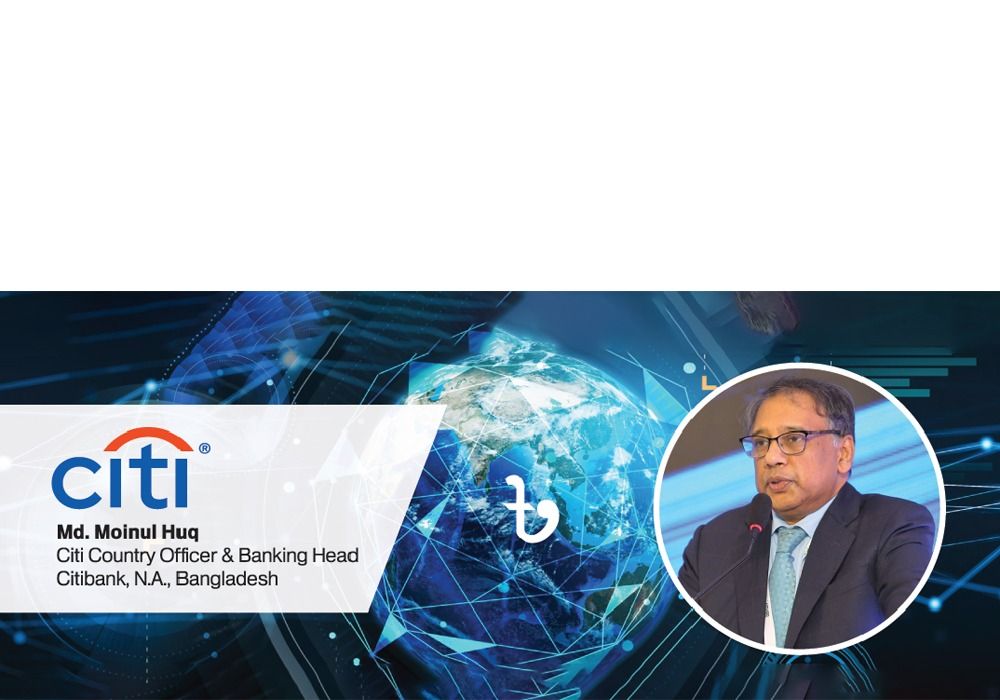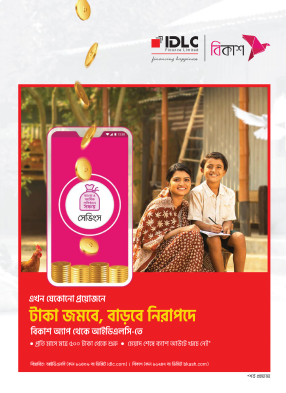- info@ficci.org.bd
- |
- +880248814801, +880248814802
- Contact Us
- |
- Become a Member
- |
- |
- |
- |
- |

Bangladesh is rapidly transitioning from a cash-dependent economy towards a sophisticated digital payment ecosystem. This transformation, driven by technological advancements and strategic initiatives, is reshaping the nation's economic landscape. As of 2024, 43% of the adult population (aged 15+) actively participates in the formal financial system, either through traditional banking or mobile money services.
Bangladesh has moved up 11 spots to lead the least developed countries in the 2024 United Nations E-Government Development Index (EGDI) and globally now ranks 100th out of 193 countries, up from 111th in 2022. As per new draft of National Digital Transformation Strategy, Bangladesh now aspires to become a top 15 nation in e-government index by 2030.
To achieve a truly cashless Bangladesh, behavioral change will be as critical as infrastructure. Awareness, trust-building, and cultural acceptance of digital money; especially among small merchants, rural users, and women-will determine success.

The Rise of the Digital Payment Ecosystem
The primary catalyst for this digital revolution is Bangladesh's remarkable growth in digital connectivity. By 2024, 82% of adults owned a mobile phone, with 38% utilizing smartphones. This widespread adoption is underpinned by extensive network coverage, with 99% of the population benefiting from 4G access. This robust digital backbone has created fertile ground for innovative financial solutions, significantly advancing financial inclusion and economic efficiency.
The statistical data underscores the dramatic shift towards digital payments:
• Approximately 84% of all banking transactions are now digital.
• Within that, 56% use digital platforms and 28% rely on MFS.
• Within that, about 47.8 percent of the total population uses MFS wallets, internet banking usage stands at 44 percent, and card (debit, credit, prepaid) usage at 30 percent.
• Conversely, the demand for printed money continues to grow, rising at least 10% annually, incurring an estimated cost of Tk 20,000 crore per year.
Key Pillars of Digital Transformation
Several initiatives and platforms are at the forefront of Bangladesh's cashless journey.
Banking Channels & Payment Systems: various payment systems and clearing mechanisms play a pivotal role towards digital transformation. These include,
• RTGS: Processes 69% of digital transactions, handling ~Tk 23,000 crore daily.
• NPSB: Recorded Tk 50,000 crore in July 2025.
• EFT: Accounts for 11.9% of digital transactions, with a monthly value of ~Tk 86,661 crore.
• Cards: Over 50 million in circulation, with ~Tk 48,200 crore in monthly transactions.

Mobile Financial Services (MFS) Growth: Platforms like bKash, Nagad, and Rocket are indispensable MFS providers in Bangladesh, offering diverse services such as transfers, bill payments, and microloans via smart- phones, thereby profoundly redefining financial inclusion for unbanked populations.
With 13 MFS providers, Bangladesh's 2024 transaction volume hit Tk 17.37 trillion (50% of GDP), projected to exceed Tk 25 trillion by 2025. Globally, Bangladesh accounts for 8.61% of daily mobile money transactions and 11.36% of all mobile money accounts.
Integrating A-Challan: A Game-Changer in Digital Taxation: Since 2022, A-Challan revolutionized digital tax payments, collecting Tk 1.058 trillion (1/3 revenue) and processing Tk 5-7 billion daily. It delivers real-time collec- tion, transparency, and reduced costs, integrating digital payments into the fiscal framework.
Agent Banking: Agent banking is key to financial inclusion in Bangladesh, providing crucial services to remote communities. Over 80% of its 18,475 outlets are rural, bridging access gaps. The government plans full digitization and skill enhancement for agents.
Fintech Innovations: Bangladesh's fintech ecosystem innovates with Bangla QR for unified payments, APIs/Open Banking for interoperability, etc, enhancing trust and security in the digital payment
landscape. Cross-border e-commerce: The outlook is exceptionally favorable, supported by a young, digitally proficient population, rising adoption of wallets, increasing internet penetration, and a well-established ready-made garment (RMG) sector seeking direct-to-consumer (D2C) export opportunities. The integration of global payment solutions such as PayPal, Stripe and Alipay or likes is of paramount importance to unlock this potential. This would facilitate secure international transactions, enhance global trust, and seamlessly connect Bangladeshi merchants and freelancers to the global digital economy.
Digital Banks: The introduction of fully digital banks is set to accelerate convenience, reduce dependency on cash-based services, and push financial inclusion deeper into underserved areas.
Future Instant Payment Network to step into the era of next digital revolution
Inclusive Instant Payment Systems (IIPS): Bangladesh is launching IIPS with Mojaloop for instant, low-cost transfers between financial institutions, payment service providers (PSPs) and Mobile Financial Service (MFS), aiming to reduce cash transactions and foster a cashless society. This system will build user confidence crucial for instant payments.
Market Forecast & Why It Matters
Bangladesh's digital payments are currently dominated by Mobile Financial Services (MFS), with transactions reaching Tk 17.37 trillion in 2024 (around 50% of GDP) and projected to surpass Tk 25 trillion by 2025. Broader digital payments-including cards, e-commerce, and online banking-are expected to grow from about US$15.5 billion in 2024 to over US$24 billion by 2028. This significant growth is crucial due to,
• Financial Inclusion: MFS/Agent Banking bridge gaps, enabling access.
• Transparency: Digital trails reduce corruption, increase accountability.
Market Forecast & Why It Matters
Bangladesh's digital payments are currently dominated by Mobile Financial Services (MFS), with transactions reaching Tk 17.37 trillion in 2024 (around 50% of GDP) and projected to surpass Tk 25 trillion by 2025. Broader digital payments-including cards, e-commerce, and online banking-are expected to grow from about US$15.5 billion in 2024 to over US$24 billion by 2028. This significant growth is crucial due to,
• Financial Inclusion: MFS/Agent Banking bridge gaps, enabling access.
• Transparency: Digital trails reduce corruption, increase accountability.
• Convenience/Efficiency: Digital transactions simplify services, cut costs.
• Women's Empowerment: Closes gender gap in finance.

The Way Forward: Strategic Recommendations
While Bangladesh's widespread financial service provider network, rural focus, and adoption of mobile financial services highlight its strong commitment to financial inclusion and digital finance, sustained progress hinges on following proactive measures:
1. Bridge Digital Divide: Expand affordable internet, low-cost smartphones, and targeted digital literacy for all, especially vulnerable groups.
2. Boost Interoperability & Competition: Enable seamless transfers across MFS, banks, and fintechs; promote open APIs and fair competition.
3. Incentivize Digital Adoption: Implement fee reductions, tax incentives, widespread QR payments, and embedded finance for micro-merchants.
4. Strengthen Security & Trust: Deploy Al/ML/blockchain for fraud prevention; conduct public campaigns on safe digital finance.
5. Digitize Government Payments: Transition Government-to-Person (G2P) transfers, subsidies, and pensions to digital platforms. Digitize utility, license, and permit payments to further streamline govern- ment operations.
6. Support Digital Banking Infrastructure: Simplify licensing while ensuring consumer protection; ensure recognition of digital bank statements.
7. Foster Financial Innovation: Encourage super-apps, digitize cross-border remittances, and incentivize bank-fintech partnerships.
8. Fostering Financial Literacy: Empower individuals with knowledge for informed decisions and building financial safety nets.





